
So many people give up on homeschooling when it comes to high school, but there’s no need to get intimidated. Home is still a great place to give our students a quality classical education, as long as we provide them with the supports they need to finish well.
You can homeschool high school classically. I’ll share what we have used and also resources to help you figure out a plan that will work for your family.
Honestly, I love this stage. When I am sitting on the couch listening to my 5-year-old sound out words, I remind myself: It’s ok. We have to do this now so that later we can talk about Beowulf and diagram sentences.
First, let me say: If you have a seventh grader (i.e. a 12-year-old) and you’re despairing that he (usually he) will ever be independent or motivated or trustworthy, let me tell you: hang in there, stick it out, hold the line – it will happen. Don’t give up. It will pay off.
I believe the tears sown in the middle school years are reaped as fruit in the high school years. The self-management and independence and work ethic issues we worked out when our sons were 11-13, and they set their hands to the plow for high school to finish well of their own accord.
You can do it!
Table of Contents
- Three Things to Remember When Homeschooling High School
- Ninth & Tenth Grade Homeschool Curriculum
- High School Curriculum Reviews by Subject
- Dual-Enrollment for High School
- Homeschooling High School: Mom as Cheerleader, not Teacher

Homeschool High School Math Curriculum
Most of our children continued with Math-U-See through high school, working through Pre-Calculus or into Calculus before moving on to college math.
Math-U-See is completely rigorous and thorough enough for high school math. The mastery approach still fits for high school students, who might not all make it through Pre-Calc, but can all continue to be challenged at their level, no matter how far they get in math.
My oldest only made it partially through the Pre-Calc book before testing into college-level Pre-Calc and doing quite well at the community college in math for junior and senior year.
The real trick with math and high schoolers is staying on top of corrections and getting them the help they need as they work through advanced concepts. Because my own math mastery is not adequate for that and my husbands’ time was less available, for our middle high school kids we’ve opted for online math through Logos Online.

HOMESCHOOL AUDIT
Make next year better based on how this year went.
Download the free homeschool audit and use this year’s experience to make next year better.
Homeschool High School Bible Curriculum
My rule of thumb for high school students is that they should be reading and engaging with adult-level books.
We spend 2-3 years reading through Calvin’s Institutes as our core theology studies in high school. We’ve done it with friends, calling it Coffee & Calvin or Calvin Club depending on the group, and treating it like a regular book club.
After all, my goal and priority for high school is to make that checking in feel more like camaraderie of learning rather than taskmaster checking boxes.
We’ve also spent 1-2 years reading 2000 Years of Christ’s Power. Although it is a church history series, the doctrines and controversies that have shaped church history are explained in context, which helps with understanding of sometimes seemingly abstract and irrelevent ideas. Seeing them in context historically eliminates the modern assumption that ideas are not practical.
Here are a few other books that have been part of some of our high school plans:
- Basic Christian Living, Doug Wilson
- Basic Christianity, Stott
- Being Christian, Jim Wilson
- 7 Toxic Ideas Polluting Your Mind, Anthony T. Selvaggio
- How Shall We Then Live, Francis Schaeffer
- A House for My Name: Surveying the Old Testament, Peter Leithart
Note: None of our high schoolers read all of these books; instead, each of the above found a spot on at least one of our high schooler’s checklist at some point.
Homeschool High School History Curriculum
One year I had a student read From Dawn to Decadence by Jacques Barzun, History of the American People by Paul Johnson, and The Patriot’s History Reader for primary source historical documents.
These were both amazing books and I’m so glad I read them with my oldest. We had interesting conversations about them both, spilling into dinner conversations and relating to other topics in surprising ways throughout the year.
I ended up turning to the audio version for History of the American People in order to keep up, and was behind Hans in Dawn to Decadence most of the year, but instead of giving up I kept going, mostly because the book was just so good! Prereading or no, I wanted to read it – I just couldn’t keep up Hans’ pace.
Dawn to Decadence is not for every high schooler. It requires a strong, intelligent, theoretical, mature reader. It’s a cultural history, not an events-narrative history. A more practical-minded student might not be able to stick with it.
NB: Details necessary to explain culture are included; it is an adult book. Nothing is sordid or detailed, but topics and mindsets necessary to explain the shifts from AD 1500-2000 are discussed. I appreciated it, and think it was appropriate, but I know not everyone would, and the maturity of the 14-year-old would also impact the appropriateness.
We’ve also used Wes Callihan’s video series. These lectures weave together history, art, literature, and theology – some years some students did the assigned reading, and sometimes not.
The Dave Raymond history lectures available from Roman Roads or Compass Classroom are also favorites of mine.
Homeschool High School Science Curriculum
Riot & the Dance Biology
by Dr. Gordon Wilson; published by Canon Press
We use this excellently written and engaging text along with written narrations and diagram-copying plus paired YouTube videos as our ninth grade science credit. That’s right: we don’t do any experiments. But we do watch a few.
Introductory Physics
by Dr. John Mayes; published by Novare Science & Classical Academic Press
Introductory Physics is well written and covers key concepts in Physics with minimal math. It is the core text we use for 10th grade. We schedule it with narrations and assign a few of the math problems but not all that are included in the book.
9th grade science for us is The Riot and the Dance by Gordon Wilson. I adapted some of the written review to sketch-review assignments and also included a related Khan academy video. No, we did not do any of the labs. Didn’t plan to, didn’t, don’t regret it.
10th grade science, then, is Introductory Physics by Novare Math & Science; it’s written for high school freshmen or sophomores and is less math-intense than typical Physics. We do not do the experiments or all the math or review questions. Instead, I add other reading and sketching, using Drawing Physics and 6 Easy Pieces.
The student reads a few pages in the Novare textbook twice a week and makes a “science journal” entry each time. The entry doesn’t have to be a full-blown paragraph, but rather a page of notes with diagrams or illustrations as desired.
Basically, I homeschool high school so we can focus in on awesome books and not waste time with learning “activities,” most of which I’m certain are created in order to fill time. I’m not opinionated or anything, though. ;)
My oldest then went on to do two lab sciences at the community college in high school. My second son didn’t get more science until Natural Philosophy his junior year of college at New St. Andrews College. My third high school student is taking Advanced Biology through Logos Online and will actually have to do tests and experiments (gasp!).
Homeschool High School Literature Plans
Some years we’ve done The Aeneid, The Inferno, and Beowulf in a class with friends, along with Shakespeare (Much Ado about Nothing, Richard III, and King Lear) and Plutarch (Demosthenes and Cicero, with Anne White’s guide, of course).
Another year we did an early modern lit class, reading Pilgrim’s Progress by Bunyan, Emma by Jane Austen, Oliver Twist by Dickens, and Huckleberry Finn by Twain.
Homeschool High School Electives
Typing is an important secondary skill to have as a teen and adult, and so a few times a week he’ll work on increasing his typing speed using keybr.com
Economics Curriculum
Probably if I was keeping track, this would be a “half credit” class, but on our schedule it just is what it is. I have the plans and I’ll put it on a transcript, if I need to make when, the way I need to in order to communicate to whoever the transcript is for.
For Economics, we using the Economics for Everyone video series from Compass Classroom done with R.C. Sproul Jr. A lesson every other week from this gets us through the course in a year. In addition to the course, I assign Economics in One Easy Lesson. The one easy lesson? TANSTAAFL: There Ain’t No Such Thing As A Free Lunch.
My oldest did most of the Stewardship Math-U-See program as well, but we decided it wasn’t worth repeating with subsequent high schoolers. Instead, they did the Dave Ramsey self-paced course for high schoolers.
Logic
Intermediate Logic
by Jim Nance, published by Canon Press
We used the full video curriculum for this one and my oldest thoroughly enjoyed it. He did Introductory Logic in the same series in eighth grade, and ate up this program in ninth. My second son, on the other hand, was less enthusiastic and less into the abstract reasoning, so we dropped it for him.
My oldest then took Logic at the community college and found that he’d already covered most of the material from this program. He didn’t mind the review or the easy A.
Music Appreciation
How to Listen to and Understand Great Music
Great Courses.
We’ve gotten our audible credit’s worth from this one.
Each week, my ninth graders listen to one lecture, then briefly narrate to me what it was about.
Scheduling a High School Homeschool Year
The other necessary skill to education and study is accountability and responsibility – and they are intimately linked. Never expect what you don’t inspect. We have twice weekly (Monday & Friday) meetings built into our weeks (which, my son pointed out, means they’ll happen half the time – he knows life well by this point), plus I must see all his work and approve his checked off checklist before he’s free for the day. It feels inconvenient and obnoxious to us both, but we both know it’s essential to ensuring the work actually gets done consistently without doubt.
My high schoolers generally have about 4-4.5 hours of work each day (more on a class day), enough for meaty work, but not so much to got bogged down, discouraged, or tired.
If I had given more than 4 1/2 hours of work per day, we would have had problems. But having cut my lists back so that everything was meaty, important, and clear, he was able to work through it and manage his load to be done by 1-ish, with time for a morning walk and a lunch break.
It leaves my high schoolers with plenty of time to develop hobbies (Disc Golf and fencing have been some) as well as mess about with friends, practice the piano extra for church accompaniment, listen to audiobooks and podcasts of his own choosing, work in the yard (for pay), get a job (which all our kids have done at 16) and, in general, be interested and interesting persons in their own right apart from school checklists and mom-assigned work.

HOMESCHOOL AUDIT
Make next year better based on how this year went.
Download the free homeschool audit and use this year’s experience to make next year better.
Homeschooling High School: Mom as Cheerleader, not Teacher
Just as our teens are learning about themselves and becoming more invested in the direction of their own lives, so we as mothers during this phase must pay attention and learn about ourselves, allowing them to grow in responsibility while recognizing our own responsibility as well.
Personally, I am very pleased with this new stage. I get to doff the mantle of taskmaster and don the role of cheerleader and support.
So here are three things I think we as homeschooling mothers can do to help our teens make the transition to personal responsibility while still holding them accountable.
Give Ownership to the Student in High School
Passing on the ownership of their education is not something that happens overnight and it’s not something that happens without mess ups. They do not wake up the first day of their freshman year ready, willing, and able to make important decisions about what to study and about how to make sure their work is done on time. Yet it is our goal to get them there by the time they leave our homeschool.
Just like you expect an infant to fall many times as he learns to walk, so expect your high schooler to plan poorly, to argue, to whine, to fail. Just like the toddler learns to get up and try again, so must our teens learn that same lesson.
When they mess up their plan, when they ignore their work and try to get out of it (when, not if), when they are sloppy, when they blame their failings on you, it doesn’t mean they aren’t ready to take ownership any more than a toddler’s fall means he isn’t ready to walk. It’s all part of the process of learning. We learn better when we work through the consequences of our choices.
We must remember that as mothers, both for ourselves and for our teens. Are some of our choices backfiring on us? We need to stand, take responsibility, and move forward to fix it. Are our teens choices backfiring on them? We need to stand, hold the line, and make them take responsibility and move forward to fix it.
Make sure they have interests and hobbies to pursue, something compelling them to get outside, to create, to expand their skills and knowledge.
Hold Your High School Homeschool Student Accountable
Giving our teens ownership is not the same thing as pushing them into the deep end and letting them flounder.
We don’t give them independence and responsibility so as to make our job easier. That’s not the point. If it is our primary purpose, the problem is with us, not them – which we must remember when the house of cards collapses.
The student has true ownership and true responsibility, but not sole ownership or autonomy. We, as the parents, still bear responsibility for their education and must hold them accountable to their work – whether it be work we gave them, work they volunteered for, or work assigned by an outside teacher.
That means we must continually pay attention to their work, even if we delegate much of it.
This doesn’t have to mean we are constantly playing school police, although sometimes it might feel like it. When we ask to see work, when we listen to narrations, when we give feedback on papers, when we ask questions, we are demonstrating that we care.
If we want our child to care, we must care enough ourselves to follow through. We can delegate the planning, we can delegate the work, but we cannot delegate the caring.
When the going gets tough – as it should in high school – the fact that he knows you care will be a brace to help him stick to it. If he must rely only on his own caring, he will interpret that to mean it depends on how he feels – and I speak from the experience of being the high school student here. There will be days he doesn’t feel like it, when it seems like it doesn’t matter. If he believes that doing his work is entirely up to him, there will be days when he simply does not do it – and he will have a multitude of reasons.
We need to be there, ready to help him through that point. We, also, know that feeling and give into it too much. There are days I do not do what is on my list and although I have reasons, they are bad reasons.
When we give our high schoolers accountability and catch such days and help them through them, we are not only making sure the work is done, we are helping to prevent a habit of excuses from forming.
Don’t Overschedule Your High Schooler
Of course, sometimes there are reasons to not get to the checklist that are valid – as we will, as mothers – personally attest. Things come up that get in the way, that derail us, and that require a shift in priorities.
If we want their work to be reliable, however, we have to ensure they have reliable time reserved for the work we are requiring.
It’s easy and tempting to steal their time for our purposes, to tell them that most high schoolers don’t have free time either, to discount their down time. But connections and thinking happen in the down time and we don’t want teens like “most high schoolers” – and that needs to be reflected in how they spend their time.
It does get harder. They do have more work. There will be resistance to overcome. There will be more homework, more deadlines, more activity.
But let us ensure they’re not staying up late for homework. Let’s make sure they have time to hang out with friends outside of organized activities. Let’s make sure they have a hobby or two that they still have time for – maybe not every day, but most days.
As they begin learning about and transitioning into adulthood, we can think about what a balanced adult life looks like and make sure we aren’t encouraging or building bad habits from the start: Do we want men who think it’s normal to bring work home and spend the evening finishing his work? Do we want women so preoccupied with pleasing others’ expectations that they can’t simply enjoy themselves? Do we want adults without hobbies, adults without attention to the world around them, adults with no idea how to manage free time?
School will take more of our high schooler’s time, and they will have more outside obligations as well. But we need to refrain from overcommitting them. We need to hold back our panic that we have so little time left with them. We should not make them bear our guilt for what we haven’t done yet.
We need to guard their time as we would guard our own.
After all, free time is the best motivator I have found for diligent work. If there is no hope for time to do what they want, our teens – and ourselves – are prone to dawdle, procrastinate, and meander. We need to have a reason to work well and with attention – not just for a certain result in the work, but for a certain hope for our time.
When our kids hit high school, suddenly everything seems more high stakes. Our time is short, our choices more influential than ever. Although that can paralyze us, we mustn’t let our anxiety smother our teens.
Really, all three tips come down to realizing our teens are young adults and treating them as such. We know the temptations of adulthood – we deal with them every day. Our job is to not let them flounder in the deep end of those temptations, but give them direction and guidance and structure as they gain experience and skill in navigating responsibility.
But what about high school transcripts?!
My first principle when it comes to credits and transcripts is that we should not concede the right to determine what counts to a broken system. I really don’t care how many hours the government school system says make a credit or half credit. Their classes and how they spend those hours is a joke. They don’t get to make the rules for what I say is what we’re doing for high school history.
My goal is to prepare them for college studies and for life. If they are reading adult-level books and can converse about and write essays on what they are reading, they are receiving an adequate education.
For transcripts, look to the colleges you will apply to and see what they want from homeschool students. Mom writing more details and information is generally not what bureaucrats want to sift through. They don’t care what curriculum you used. They don’t care about seeing sample work. If they want to see student work, they will ask for an essay as part of the application process. For the most part, they will go by SAT, ACT, or CLT test scores, not the grade mom wrote on the transcript.
I did not and do not grade work my students do – before high school or after high school. Math is corrected, then redone until 100%. Writing is turned in, I give feedback, and my students have to rewrite it until it’s a good representation of their increasing skill. I don’t change how I educate according to what government schools are doing or in fear of a college admissions officer.
I have a written plan for the books and subjects we did each year. My oldest never needed a transcript at all and I’m glad I didn’t waste any time on preparing for one. My second son applied to New St. Andrews a year early, so it turns out what I thought at the time was his 8th grade year was actually his Freshman year of high school. No biggie.
It took me about 30 minutes to fill in the transcript template from my plans, and I assigned A/B grades that were an accurate testimony of what the college could expect from him and that were commensurate with his CLT test score.
Getting a homeschooled kid into college is not a big deal. Every place now has an admissions policy and, really, if your child can hack the academics and you’ll pay for it, most colleges aren’t critically scrutinizing your work.
I’ve never heard of a homeschool mom being asked for class descriptions. I mean, I turned in papers at college, received a grade, and I’m pretty sure the professor didn’t even read the whole thing – 22 years ago. I’d bet money no admissions bureaucrat is actually reading class descriptions appended to an application.
Don’t overthink it. Don’t stress. If you have a student who can read and talk and write, you’ve got a cream-of-the-crop student among his peers and most universities are not that picky. There is no reason to be intimidated by the process. You are not on trial.

HOMESCHOOL AUDIT
Make next year better based on how this year went.
Download the free homeschool audit and use this year’s experience to make next year better.

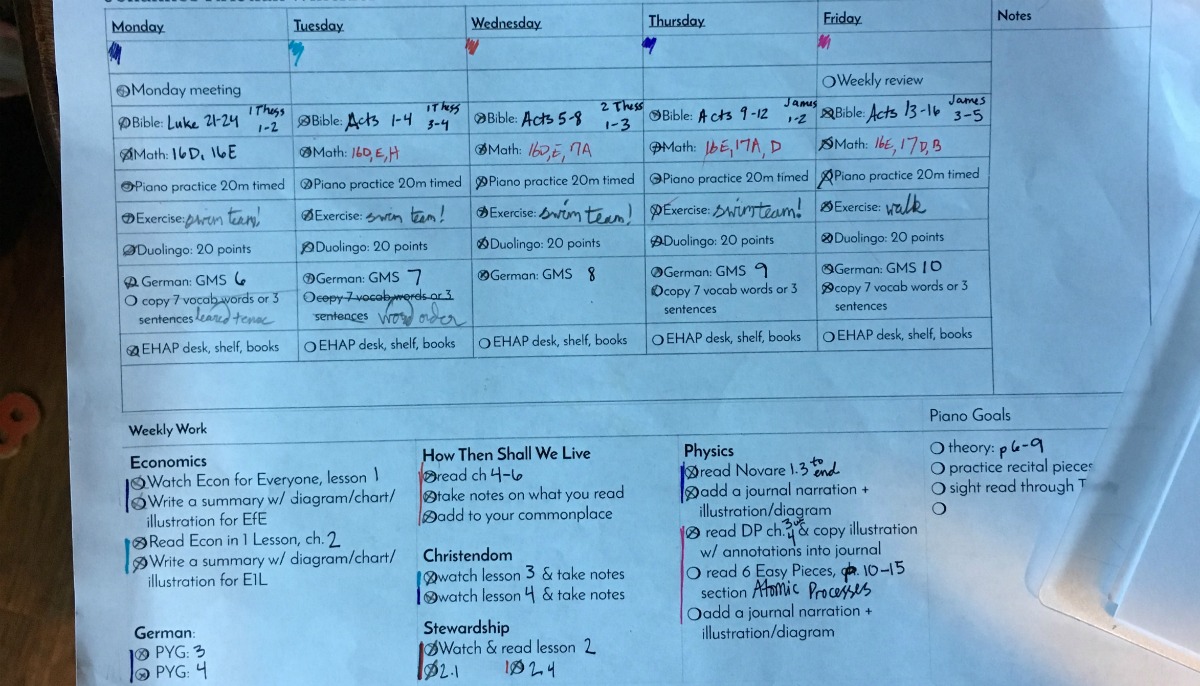
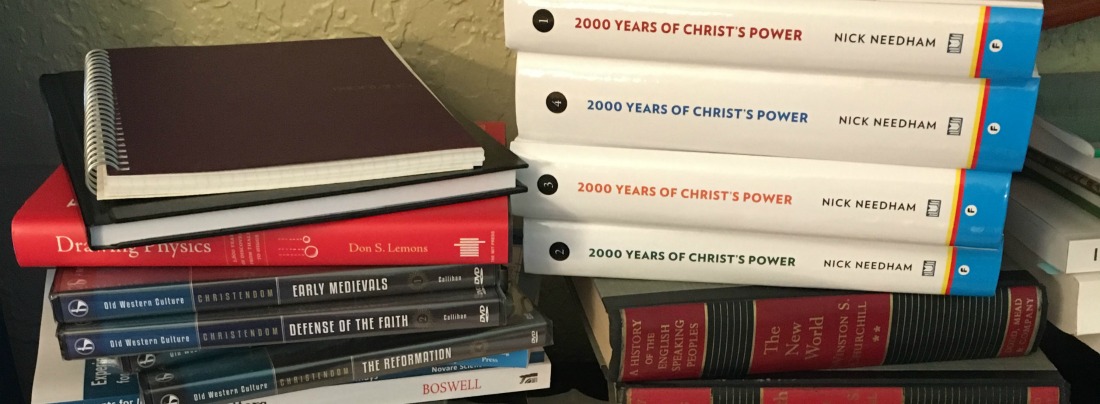
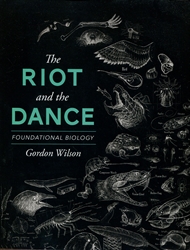

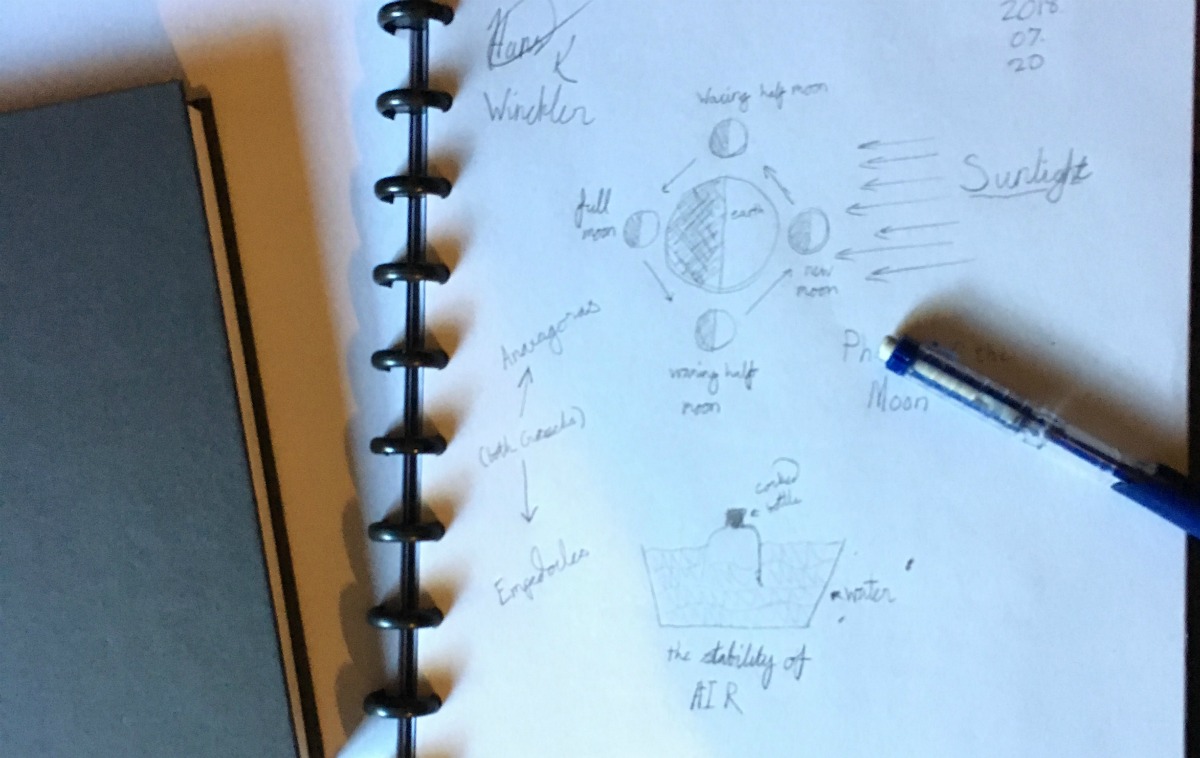


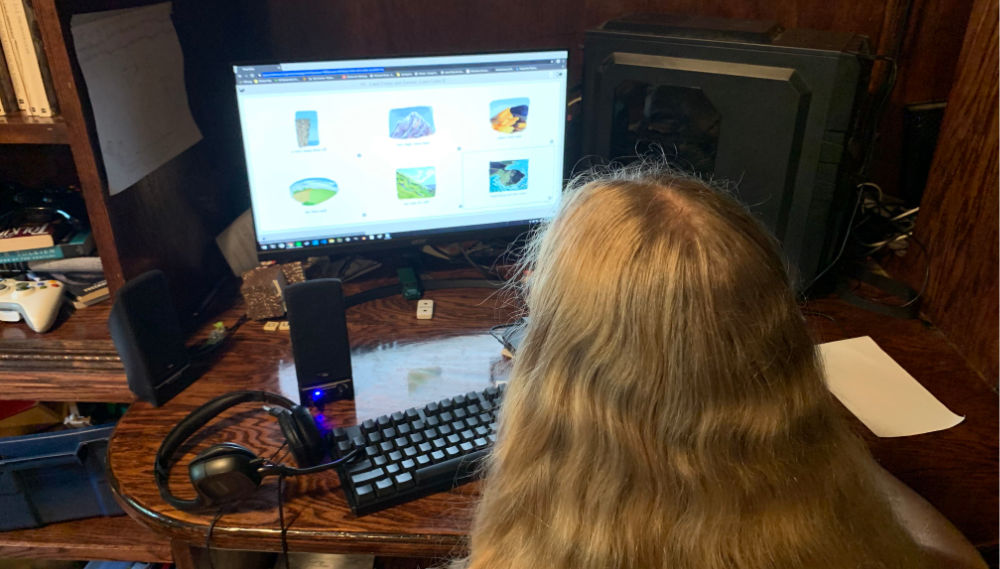



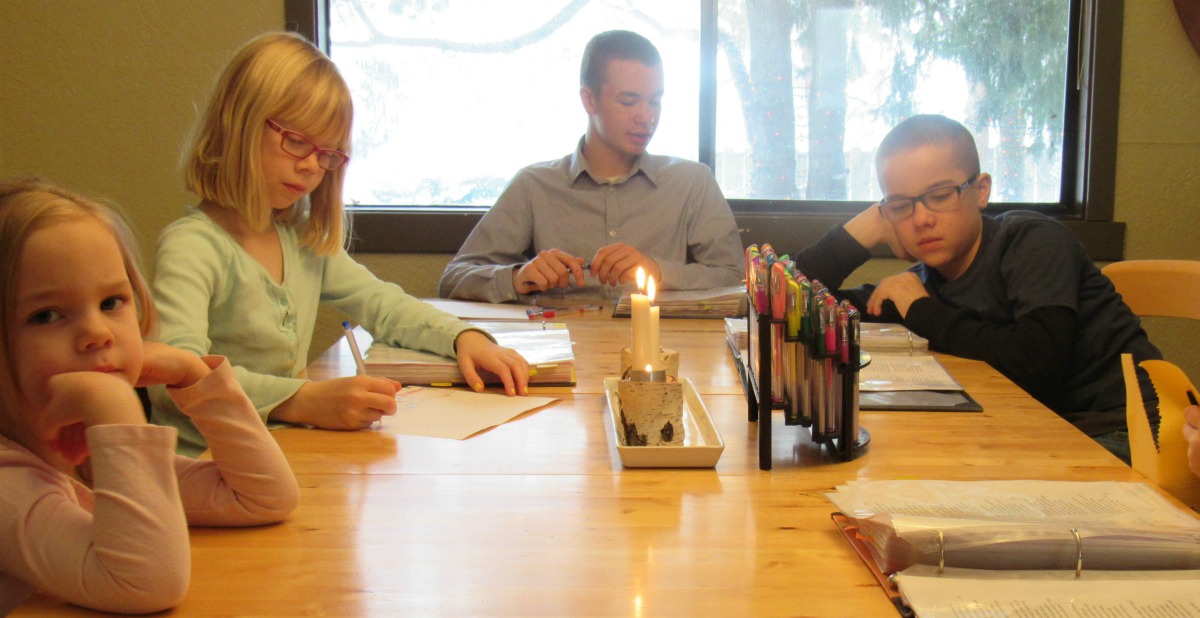
Hi Mystie,
Thanks in part to your review (and Brandy’s), I am starting Riot and the Dance this fall with my Y10. I’ve looked everywhere on your site for the list of Khan labs that match RatD that you created and I know must be here somewhere :). Can you help me out? Thanks, in advance!
I found this article both humbling & encouraging. Thank you for helping me to think about my approach with my high-schooler.